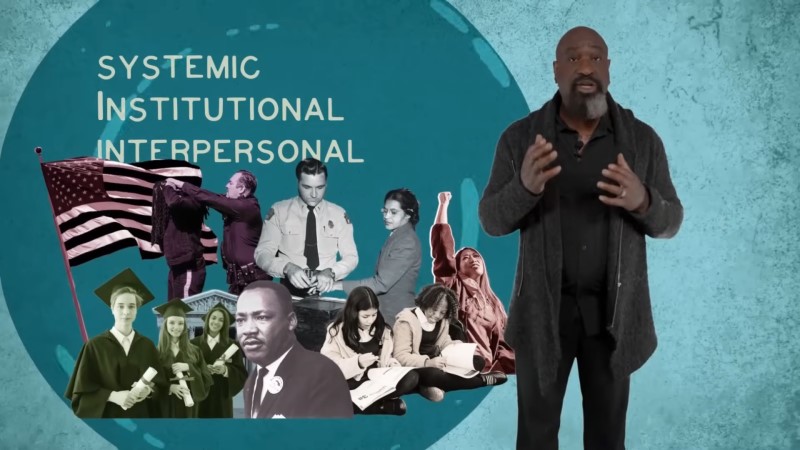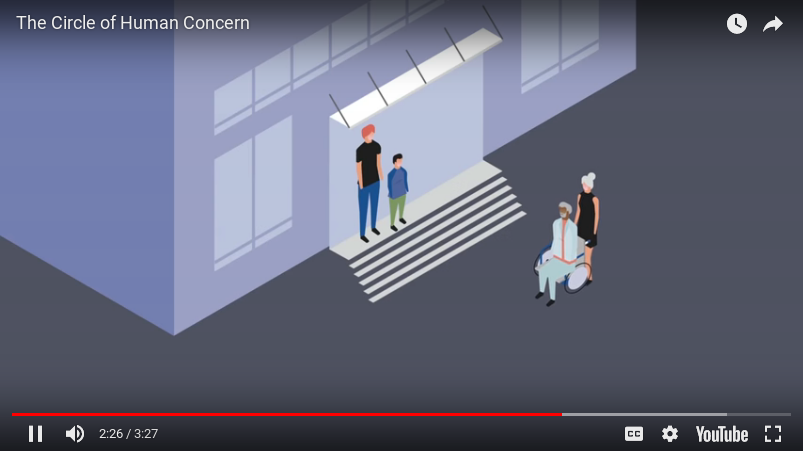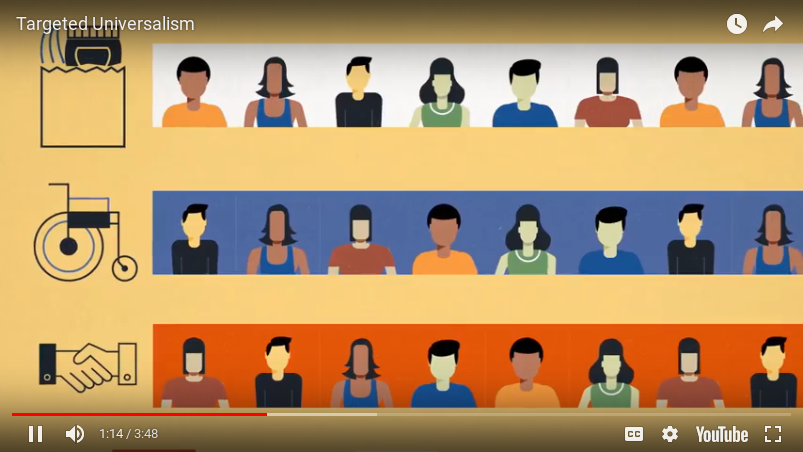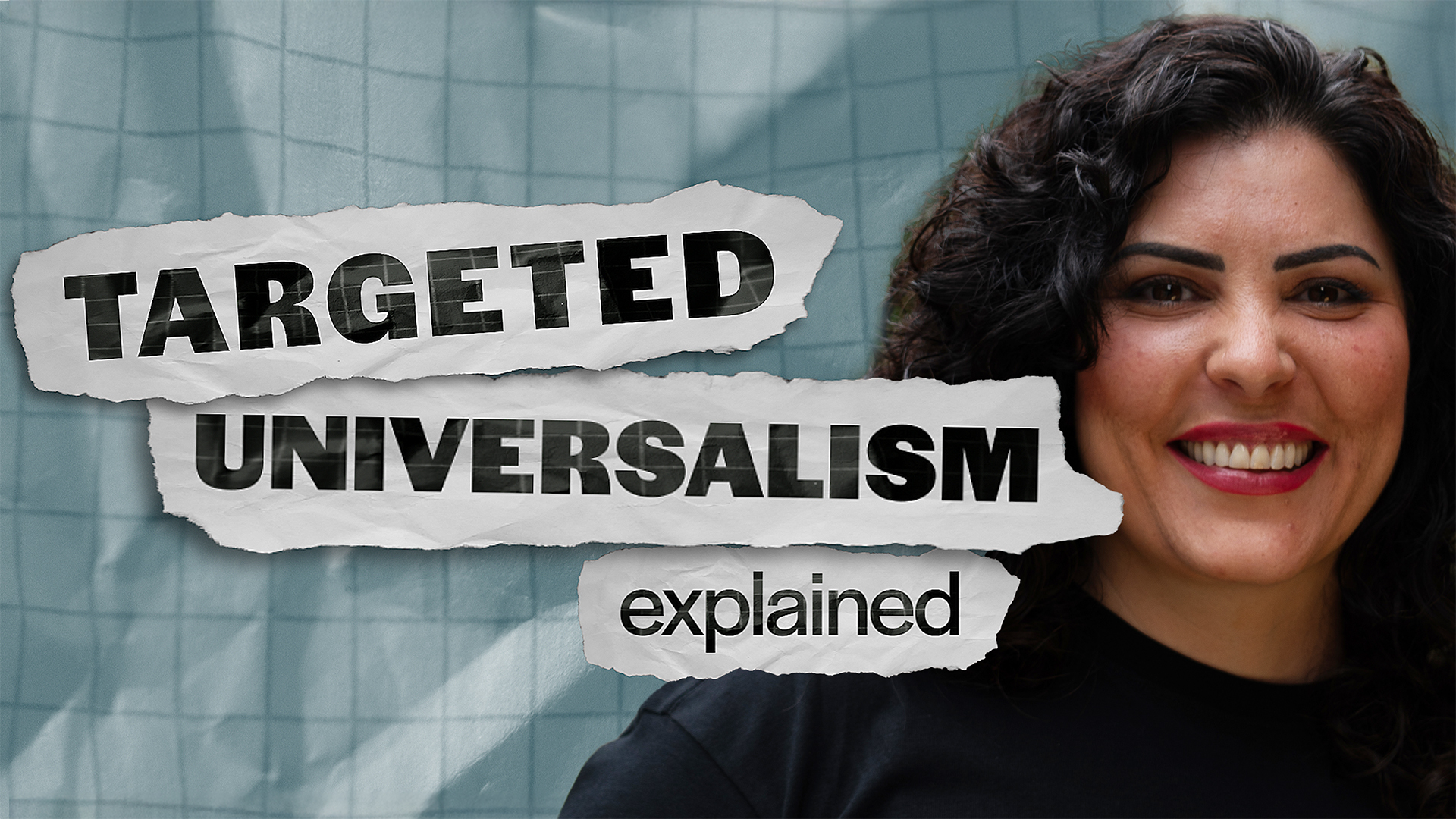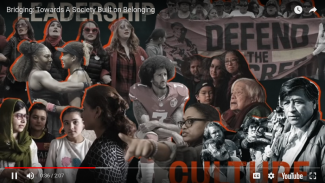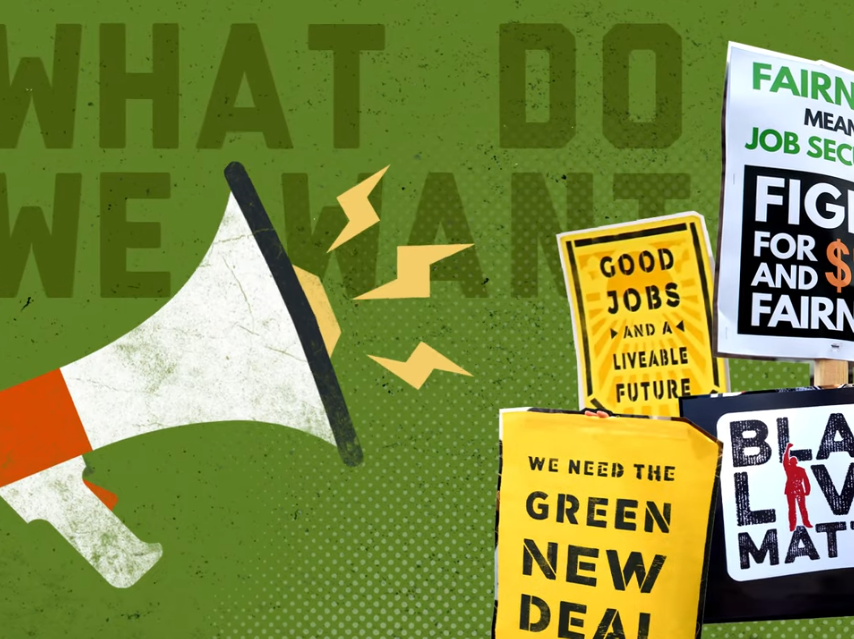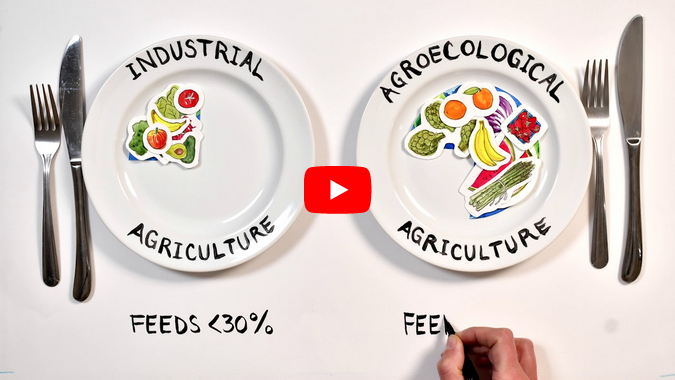Our animated explainer videos break down some of the key principles that guide our work at the Othering & Belonging Institute. Follow the links below to view the videos, to read transcripts of the audio, and to learn more about each concept.
Structural Racism: The Dynamics of Opportunity and Race in America.
What is opportunity—and how is it shaped by race and structural inequality? Based on insights from Stephen Menendian, Head of Research at OBI, this visual explainer breaks down life pathways, equity, and systems change in a powerful new way. To learn more, pick up a copy of Stephen’s book, Structural Racism: The Dynamics of Opportunity and Race in America.
Movement for a Just World
The climate crisis and mass incarceration are two crises that have shared roots and affect many of the same communities, yet are often talked about and organized around as separate issues. What connects them? How can we talk about them in ways that resonate and advance solutions to both? OBI and the Safe Return Project worked together to research, develop and try out narratives that draw these connections. Check it out here.
Social Housing in California: Reinvigorating Housing Investment for the Social Good
Social housing has come to encompass a variety of programs and financing schemes, but all fundamentally move away from a reliance on private, for-profit motives driving housing insecurity. In 2023, California will launch a study of social housing in the state, and evaluate pathways for reimagining public investments in housing development. Learn more about this report and accompanying explainer video here.
Rethinking National Security: How To Tell A New Story In Which Everyone Belongs
Our public discourse is seeded with dangerous and counterproductive ideas concerning national security that are so deeply embedded we may often be unaware that we, as storytellers, are invoking or reinforcing them in our own narrations. Thus, over the past few years, OBI has partnered with many organizations to develop a set of principles for reframing the discourse on national security. Read those principles and watch an accompanying explainer video here.
How To Plan For An Economy Beyond Fossil Fuels
How can communities plan for an economy beyond fossil fuels? What are the pathways to an economy that is not only free of fossil fuels but also provides a good life for all its members? We offer you this Community Belonging and Climate Futures series - a sharing of community voices, data, policy ideas, frameworks for planning and strategy, and other creations coming out of a participatory research and action process in Richmond, California. Check out this project here.
Structural Racism Explained
The “Structural Racism Explained” video (above) draws upon many varied sources in formulating specific definitions for different types of racism. The video and prompts provided in this video and teaching guide are designed primarily for teachers to help students clarify and sharpen their understanding of the material, spur and support classroom discussion of the video and ideas, and provide ideas and leads for further research. But the materials are also useful for people who work in diversity, equity, and inclusion (DEI) spaces and local governments. Click here to check it out.
Circle of Human Concern
This video provides an overview of the traditional ways we look at space in the public and private spheres, and then offers an alternative we call the circle of human concern. Through the framework of belonging, the video explains how the spaces are divided, who has access to those spaces, and what we can do to change the dynamics so that all people—and not corporations—are at the center of the circle of human concern. Check it out here.
Targeted Universalism
Targeted universalism signals flawed policies that are either targeted policies or universal policies. Targeted universalism addresses the weaknesses and strengths of these two types of policies. In so doing, targeted universalism is conceptually and operationally different. This video explains the difference between targeted universalism and more traditional policy approaches. Watch the video here.
Targeted Universalism Explainer
Targeted Universalism (T.U.) is a framework developed by OBI that goes beyond a call for inclusion in existing structures that serve only some of us. Instead, it invites members of any community to roll up their sleeves and co-create new structures designed to serve all of us. In this explainer video, you’ll learn about the T.U. framework, its strengths and benefits, its five stages, and how can be applied to strengthen programs across a wide range of contexts—whether in classrooms, small nonprofits, large philanthropic organizations, businesses, or even entire governments. Watch the video here.
Bridging: Towards a Society Built on Belonging
This explainer gives a high-level snapshot of our analysis of bridging and breaking as possible responses in a period of social anxiety as a result of rapid changes occurring in a number of areas, including demographics, technology, the environment, and globalization. A "breaking" response sees these changes as a threat to our societies and cultures. A "bridging" response sees the changes an opportunity to enhance who we are. Learn more here.
We the People, not we the corporations
This animated short exposes how the unmitigated power of US corporations is bolstered by divide and conquer tactics wielded to distract from the harm these companies do to society and the environment—and generate enormous profits for the wealthy few. The video sheds light on how narratives of scarcity ("There aren't enough jobs for everyone," "We can't afford to pay a living wage," etc.) shield the public from seeing just how wide these corporate profit margins really are. Click here to learn more.
Shahidi: Corporations Decoded
The Shahidi Project (a Kiswahili word meaning witness) intends to demystify the power structures and capacities of transnational food and agricultural corporations within our food system. To accomplish this, we have developed a robust database focusing on ten of the largest food and agricultural corporations in the world. Access the video and database here.
